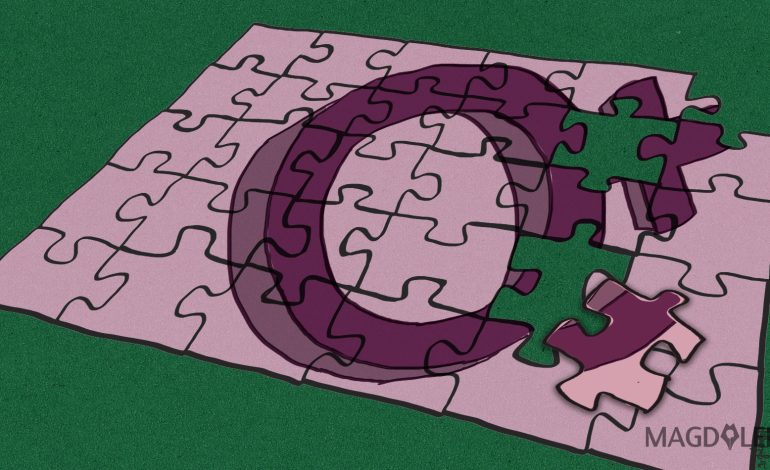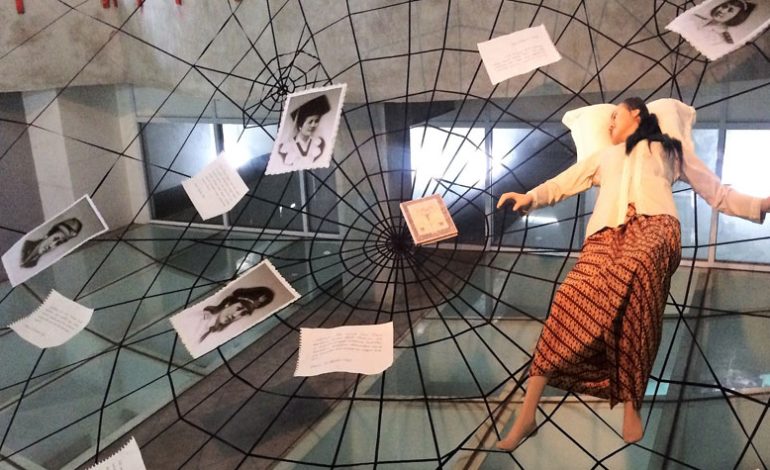Between Kartini and de Beauvoir: Where Am I?

I write this on behalf of myself. That being said, though I do not intend to speak on behalf of all Indonesian “women,” as I believe each “woman” has her own particular dilemma, it does not necessarily mean that we “women” do not share the same dilemma.
The dilemma in my case is that the “I” in me craves an answer to the question: “what does it mean to be a ‘woman’ within the Indonesian social context?”
I am asking this because I was disturbed when I searched the definition of a “woman” (“perempuan”) in the Indonesian dictionary. How dare it! I mentally screamed as I stared at my laptop screen (of course I should not rely on dictionary per se in searching the answer of my question, but it was a starting point). The definition gives a reductionist depiction of being a “woman.” It associates “woman” with motherly and female biological characteristics, and the examples and context given are mostly of prostitutes. I do not say that this is inherently wrong, but when I looked up the definition of a “man” in that same KBBI website and read the examples attached to that definition, I was enraged.


So, what does it mean to be “woman” within the Indonesian social context? (I put the quotation mark to imply that the term “woman” here can be interpreted loosely).
I looked for the answer in Kartini’s writing, Habis Gelap Terbitlah Terang, a book of her letters translated by Armijn Pane. I must admit I was little bit late to this book, having borrowed it from the Leiden University Library just this year. A little note, though, it seems odd that I found the book in Leiden, not in Indonesia where I searched for this books in vain for months.
There are two things about Kartini’s letters that fascinate me. Firstly, she was not afraid to be critical of her social surrounding. In a letter dated November 6, 1899, she questioned religion, reflecting: “Is religion a blessing to human beings? Religion must prevent us from committing sins, but look how many sins were made in the name of religion?”
Though she argued that it was more important for a person to have a good heart, she did not necessarily contend against the importance of practicing religion.
Secondly, Kartini’s letters showed her compassionate side. In one of her letters to Stella dated August 23, 1990, she wrote: “You said you did not understand why a woman must marry. You always put ‘must’ against ‘I want’. If it was another person, I will do ‘I want’, but this is my father; I cannot do that since I know the sadness that he will carry.”
Here, what I perceive is that she was aware of her decision and was being critical of the basis of her decision. On the one hand, she implicitly questioned the notion why a woman must marry, but on the other hand, she took into account her father’s feeling, because he was an important figure to her.
Prior to Kartini, I read Simone de Beauvoir a lot. By “a lot” I mean not only did I study her infamous The Second Sex, but also I perused her writing from her novel The Women Destroyed, her memoir The Memoirs of Dutiful Daughter, and her story about her mother’s death in A Very Easy Death. I was almost obsessed with her writing (and sort of proud to brag about it, for no reason).
De Beauvoir denounced her bourgeois background; she wanted to be independent and to build her very own life separate from that background. She was into knowledge – philosophy in particular – and was eager to learn (and to compete as well, I would say). In her memoir she said: “I would have to try to preserve what was best in me: my love for personal freedom, my passion for life, my curiosity, my determination to be a writer.” De Beauvoir wrote this after she met Sartre with whom she could talk about her most enthusiastic subject: herself.
De Beauvoir inspires me in a different way from Kartini. In her, I can see a part of myself: the rage, the desire for personal freedom. In other words, she is relatable for me (not that I’m saying I’m a bourgeois). But, with Kartini, I am reminded that I am still Indonesian – though of Sundanese-Sulawesi ethnicity, not a blue-blooded Javanese like her – and I learned that sometimes one has to make a tough choice, especially for the loved one.
I do not mean to contend Kartini and de Beauvoir as they do not necessarily represent different sides. What I am trying to do is to define myself by continuously learning from their experiences. I am in my own attempt to extract their writings in search of an answer to my own question: what does it mean to be a “woman” within the Indonesian social context?
Anbar Jayadi is currently a master’s student at Vrije Universiteit Amsterdam. Her study is funded by Indonesia Endowment Fund for Education (LPDP). Between classes, she tries to deal with her own existential questions. She loves eating cupcakes.






















